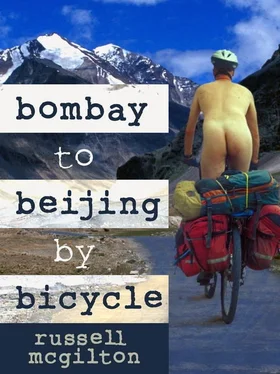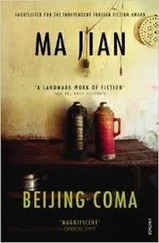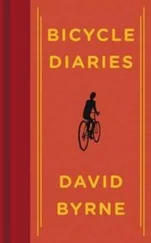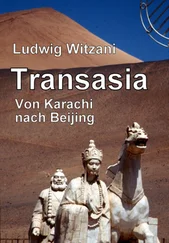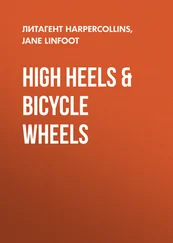‘If I don’t like her but she wants sex with me because she has drinks, what should I do? Will she be angry with me or make problem for me?’
I couldn’t believe it. Here I was lecturing an Indian teenager about female domination in a minefield of shit! Where was he getting this from?
Most likely the Internet.
Internet cafés, to my surprise, were in most parts of India, sometimes even the smallest of towns. Thus, access to hard core pornography was freely available to anyone anytime and often I would see groups of grinning young men in Internet cafés around one terminal screen in awkward aroused silence. One man, embarrassed by my disapproving looks, said, hand in the air, somewhat desperately, ‘It is only… for the knowledge !’
It was no wonder that sex was often asked about by most men I met in India, sometimes within minutes of meeting them: ‘Much fucking in the West, isn’t it?’ which had me retorting with, ‘Actually, I think there’s much more fucking in India. You’re the ones with over a billion people!’
‘Devendra. You’re getting a little ahead of yourself.’
He returned a confused stare.
After climbing a small hill, we arrived at the Pandav Lena Caves. Devendra pointed to a large cavern about the size of a garage; unlike the others, it was bare of carvings and statues.
‘It is for the elephants,’ he explained.
In another cave, a solemn-looking Buddha sat serenely, left hand cast to the side, rolled locks crawling up his skull like a cluster of grapes. The caves, built to house monks, dated back to the first century when Buddhism was flourishing. However, the only thing flourishing here at the time of my visit was the smell of damp urine from bats.
It wasn’t particularly ornamental, a feature perhaps in keeping with some of the philosophies of Buddhism: its non-attachment to world objects, its bare asceticism.
This of course made staring at the caves about as exciting as, well… staring at a hole in the wall. We sat on a rock by a eucalyptus tree listening to the insects buzzing in the dry afternoon heat, and watching clusters of auto-rickshaws screaming past each other in the wide city streets of Nasik.
On another rock, local women were placing flowers by a carving of a dancing figure.
‘What are they doing?’ I asked Devendra.
‘Making prayers.’
‘To whom?’
‘I don’t know.’
‘Could you ask them?’
‘No. I don’t know their language,’ he said with an air of indifference. I wasn’t sure whether he simply didn’t want to talk to them or he really didn’t know their language. After all, there are over 18 official languages in India, not to mention hundreds of dialects. The women looked up, aware that we were talking about them. I smiled but they shyly turned away.
‘I think it is time to go,’ said Devendra. The light was beginning to fade. ‘My auntie will worry.’
Devendra took me to a hotel. The manager led the way upstairs and opened the door to a room with boils. Yellow paint bubbled and popped across the wall while a cracked window pointed to the ensuite with a big, dirty wall fan turning listlessly. Rank water sat in the squat toilet.
‘One hundred and fifty rupees,’ the manager said.
‘A hundred.’
‘No.’
‘One ten?’
‘No.’
‘Okay.’ So much for my bartering skills.
Devendra and I looked around for the switch for the overhead fan and found ourselves staring at a panel of buttons, the envy of a 747 cockpit (this was a common feature of hotels in rural India). Devendra hit every one of them; none worked. I don’t know why there were so many switches; there were only two things we could possibly turn on: the fan and a naked light bulb. (When the generator kicked in later that night, I woke with a start to find myself with wind gushing in my face and the night suddenly day).
Devendra helped me lug the bike and bags up the stairs and then, as quickly as he had arrived, was gone. I felt suddenly alone. It had been a week since I had really spent any time talking to someone and now his company had vanished like the days behind me.
* * *
In the morning I was inordinately tired. My body creaked. My eyes hurt. I had spent most of the night in a frustrated rage fighting off mosquitoes that burgled their way through my net.
The next town, some distance away, was Yeoli, a tiny dot on my map just before a slightly bigger dot representing the city of Aurangabad, known for its Taj Mahal imitation, the Bibi Ka Maqbara. Yeoli was only 80 kilometres away but in cycle terms, it was a good day’s ride. My guidebook, however, gave me few clues (Yeoli wasn’t even listed), so I decided to stock up on bottled water, and spent all morning fighting the bluey haze of Nasik trying to find some.
For environmental reasons, I wasn’t overly hip to the idea of buying countless plastic bottles, but I didn’t have much choice. Ground water in rural areas had been contaminated by the over-use of pesticides and heavy industry, and in some parts of India, such as Uttar Pradesh, nearly 70 per cent of the population lacked access to safe drinking water.
In a ramshackle store, I came across rows of bottled water that were out of date, unsealed and ringed with dust. Most Indians can barely afford to buy bottled water, and at 15 rupees a throw, it was more than I was prepared to pay. I went to another store.
‘Water?’
The assistant looked confused. ‘Water?’
‘Water. Pani .’
‘Oh, water! Yes!’
‘How much?’
He went off to consult with his boss then came back.
‘Fifteen.’
‘It’s ten everywhere else.’
‘No. Fifteen.’
As the morning was getting on, I gave in. ‘All right. I’ll take two.’
‘No. Fifteen.’
‘Yes. Fifteen. I’ll take two.’
‘No two. Fifteen.’
‘Yes! Fifteen! I want two.’
‘Two?’
‘Yes!’
‘Moment.’ He went off behind the counter and consulted his boss. A crowd began to gather round me. He came back.
‘I am sorry. Fifteen.’
‘Wait a minute…’ I thrust 30 rupees in his hand and made a two-finger gesture.
‘Ah! Two!’ He pulled two bottles of cold water out of the fridge and plopped them down, to the applause of the crowd.
As I put on my helmet, a man, late 50s, dark, torn shirt and big potbelly held out his hand.
‘ Baksheesh .’
I waved him off but as I did I stepped in a big pile of poo – and the worst kind, human, by the smell of it. The beggar boomed a big baritone laugh.
‘I bet you’re thinking “fate, mate”,’ I smiled. He raised his eyebrows and laughed again. I shook the shit off and squelched the cycle shoe cleat into the bindings, bits of soft brownness flying off as I pedalled toward Yeoli. Disgusting, no?
* * *
‘Everywhere is different in India,’ Deejay had said to me on the plane. ‘Different culture, different language, different looks.’
I thought of this now as I cycled the rural plains of Maharashtra. The people became darker, shorter, thinner, eyes more deeply set. The fierce sun, it seemed, had dried the people out as well as the countryside. The sparsely vegetated forest floor was bare of any ground litter, picked and stripped for firewood. It was hard to imagine that this area was once a rich, lush forest. Most of India’s forests are now just tiny green freckles on the national map.
I stopped at a crossroads to ask directions from an old man sitting on his haunches and sporting a Nehru style pillbox hat.
I pointed to the left. ‘Yeoli?’
He wobbled his head. I pointed to the road on the right. ‘Yeoli?’
More wobbles so I tried saying it in Hindi. ‘ Daein (right) or baein (left).’
Читать дальше
